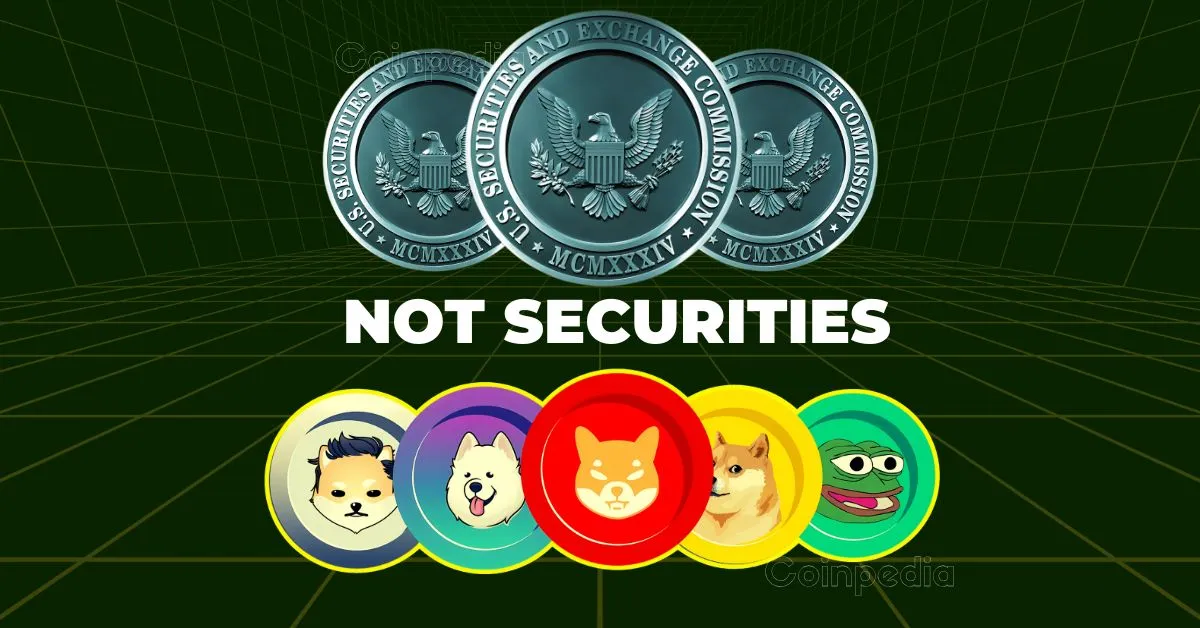
The U.S. Securities and Exchange Commission (SEC) is changing its stance on crypto, and this time, it’s a win for meme coins. In a surprising move, the agency has declared that meme coins like TRUMP and other popular tokens are not securities. That means they won’t face the same strict financial regulations as stocks or investment contracts. Instead, the SEC sees them as collectibles – bought for fun rather than serious financial gains.
But before you think meme coins are in the clear, there’s a catch. While they might not be treated like traditional investments, that doesn’t mean scammers get a free pass. The SEC has made it clear – fraud, deception, and misleading schemes will still land people in legal trouble.
Let’s break it down.
According to the SEC’s latest statement, meme coins don’t meet the legal definition of securities under the Securities Act of 1933. Unlike stocks or investment contracts, they don’t give holders rights to future profits, income, or company ownership. Because of this, meme coin creators and traders don’t have to register with the SEC or follow the same rules as traditional investments.
But this also means investors don’t get SEC protections. Without oversight, they’re more exposed to fraud, pump-and-dump schemes, and misleading marketing.
Legal experts, including Bain Capital Crypto’s Khurram Dara, believe that while the SEC won’t regulate meme coins directly, other federal or state agencies could still take action against deceptive practices. So while meme coins escape securities laws, they won’t be completely unregulated.
The SEC’s statement comes as House Democrats push for the Modern Emoluments and Malfeasance Enforcement (MEME) Act. Led by California Representative Sam Liccardo, the bill aims to ban public officials from launching or endorsing meme coins. This follows the controversy around Donald Trump’s “TRUMP” meme coin, which saw a sharp rise and fall in value. Lawmakers worry these tokens could be misused for personal or political gain, raising ethical concerns.
The SEC’s decision has sparked mixed reactions in the crypto space. Some industry players see it as a positive step, arguing that clearer rules will bring more investment into meme coins, especially on U.S.-based blockchains like Solana.
Crypto lawyer Ishmael Green pointed out that since meme coins are officially not securities, exchanges like Coinbase and Robinhood may feel more comfortable listing them—potentially boosting trading activity. Following the SEC’s announcement, shares of major crypto exchanges saw a small uptick, reflecting growing optimism.
In another unexpected move, the SEC is dropping its lawsuits against Coinbase, Consensys, and Gemini. This signals a major shift in its approach to crypto assets, suggesting a friendlier regulatory environment.
With the MEME Act on the table and the SEC adjusting its stance, the crypto industry – especially meme coins – is in for big changes. Whether this brings more clarity or more confusion remains to be seen.
Lightchain AI is rapidly approaching its much-anticipated launch scheduled for the end of July 2025,…
Solana has maintained a strong hold on the blockchain market, attracting attention for its speed…
Ripple’s XRP is back in the spotlight, roaring past the $3 mark for the first…
Solana (SOL) price is currently consolidating around the $175 mark, facing stiff resistance near the…
Ozak AI is gaining momentum in the crypto world, causing a stir in its fourth…
Story Highlights The live price of the LINK token is . Price prediction for 2025…